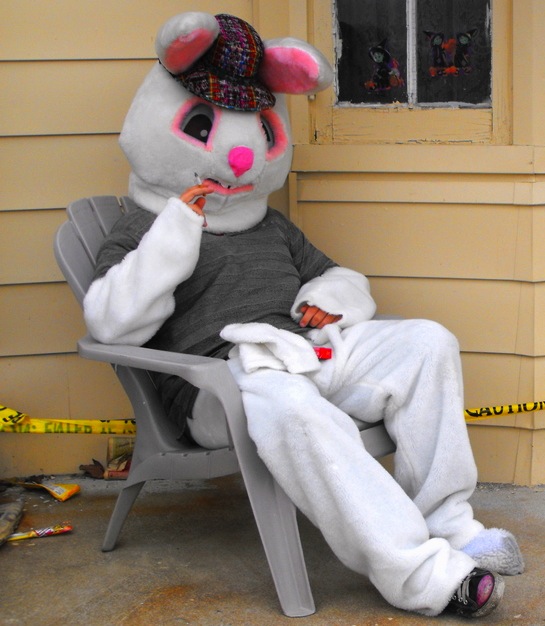Easter is the highpoint of the Christian liturgical calendar. After the season of Lent and Holy Week, Easter celebrates the key event in Christianity: the resurrection of Jesus Christ.
So, how did Christmas become the big holiday? A look at references to each holiday in English books hints at the answer. Prior to the Mid-Nineteenth Century, Christmas and Easter were written about with equal frequency. But starting in the 1840s, Christmas became more and more popular. By the early part of the 20th Century, Christmas was written about two to three times as often as Easter.
Mark Connelly’s history of Christmas examines the rise of the holiday, particularly in Victorian England. Connelly notes that in terms of religion, Easter, not Christmas would seem to be the likely choice for top holiday:
Of great importance is just why it was Christmas that became the focus and not say, Easter, Rogationtide or Harvest Festival. In terms of theological significance Easter is the major point in the calendar — everyone is born, but not everyone finds it quite so easy to return from the grave after three days. And yet Easter became peripheral; Christmas was obviously the major festival.
The turning point was the publication of Charles Dickens’ A Christmas Carol in 1844. As Connelly lays out in his book, Dickens and other Victorians didn’t invent Christmas but they re-imagined it. Dickens story brought together many of the traditions, folktales, and customs revolving around Christmas and gave it moral weight by focusing on generosity and nostalgia. Christmas became a holiday in which Victorians could celebrate the past as they faced the changes brought on by industrialization.
Easter remained a largely religious holiday. Part of the reason is its importance in Christianity. Part of the reason is purely a matter of timing. Christmas comes in the darkness of winter (and at Britain’s latitude, this can be a very long night); so, a holiday provides a distraction from the season. Easter is celebrated just as spring and longer days are arriving.
Christmas was also a longer holiday (twelves days of Christmas). Focusing on Christmas Day compacted nearly a fortnight of celebration into one holiday. Easter is the culmination of Holy Week, but Maundy Thursday and Good Friday isn’t a time of revelry.
Dickens and other Victorians didn’t invent Christmas, but they did turn it into the holiday it is today. Without them, Christmas may have remained a religious holiday much like Easter is today.
Don’t miss any more posts from the Corner of Church & State. Click the red subscribe button in the right hand column. Follow @TobinGrant on Twitter and on the Corner of Church & State Facebook page.





